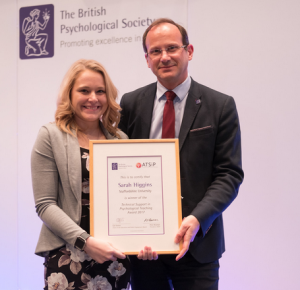
HLecturer in Health Psychology at Staffordshire University, Dr Alison Owen, is working in collaboration with Dr Manpal Bhogal at the University of Wolverhampton, looking at some of the factors that might be related to tanning behaviours and sunbed use.
In 2013, researchers Dr Alison Owen, Professor David Clark-Carter and Dr Emily Buckley at Staffordshire University, with Professor Sarah Grogan of Manchester Metropolitan University, carried out research and found that almost a fifth (18.6%) of women had used a sunbed at least once in the past month, with the majority of participants agreeing that a tan looked good (80%), and that tanned people look healthy (71.4%) (Williams, Grogan, Clark-Carter & Buckley, 2013). The current researchers therefore felt that it would be interesting to explore some of the factors behind people feeling positively about tanning behaviours or choosing to use a sunbed.
Dr Owen and Dr Bhogal are combining two areas of psychology in their present research: Health Psychology and Evolutionary Psychology. Their study involves an online questionnaire that will ask participants about indoor sunbed use, attitudes towards tanning and topics such as self-esteem.
If you are over 18 and are interested in participating please complete the online questionnaire – it is open to all people, both those who use sunbeds as well as those who don’t, and just involves you answering a short survey.
If you have any questions about the research then please contact Dr Alison Owen: alison.owen@staffs.ac.uk.
Staffordshire University – The Home of Health Psychology

Staffordshire University has a history of excellence in teaching and research in Health Psychology, and is home to Staffordshire’s BPS Accredited Stage 1 MSc in Health Psychology and Stage 2 Professional Doctorate in Health Psychology. The Staffordshire Centre for Psychological Research has active team of Health Psychologists who conduct research and provide consultancy in a range of health-related issues.
Keep updated with the latest Health Psychology news from Staffordshire University via following us on @StaffsPsych @HealthPsyStaffs and via the #HealthPsychStaffs hashtag.
For further information about Health Psychology courses and research at Staffordshire University please visit the following webpages:









 offers a range of
offers a range of 